#books of Christ
Explore tagged Tumblr posts
Text
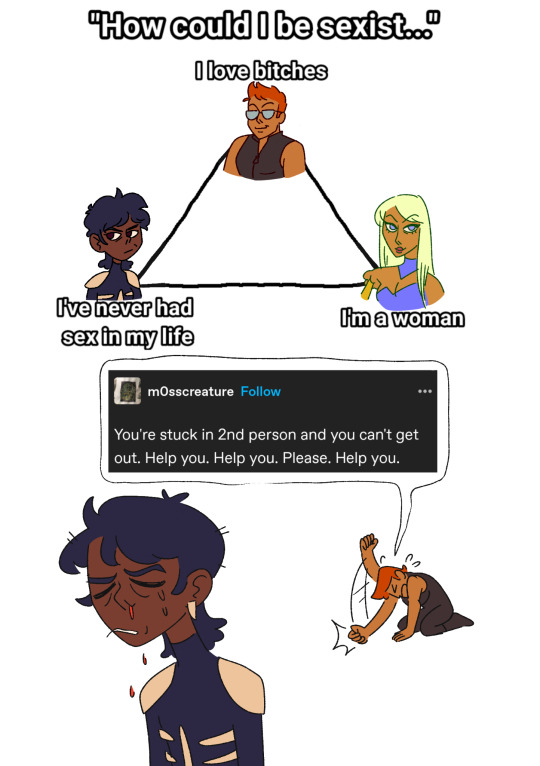
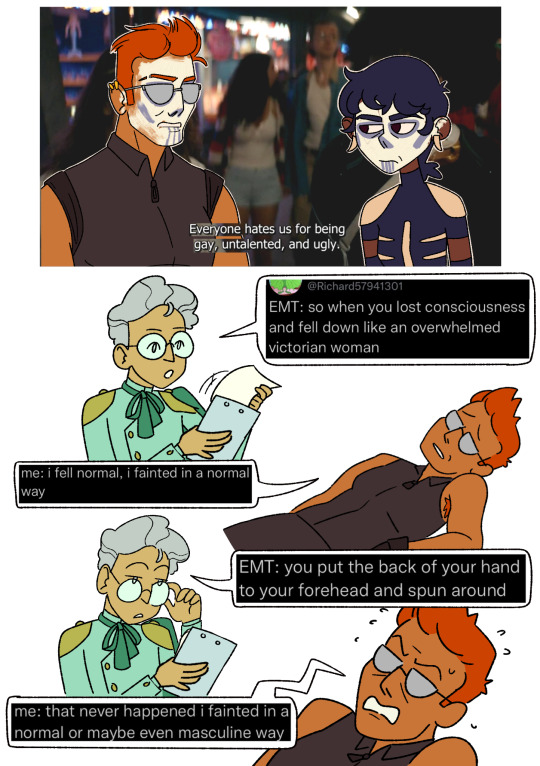

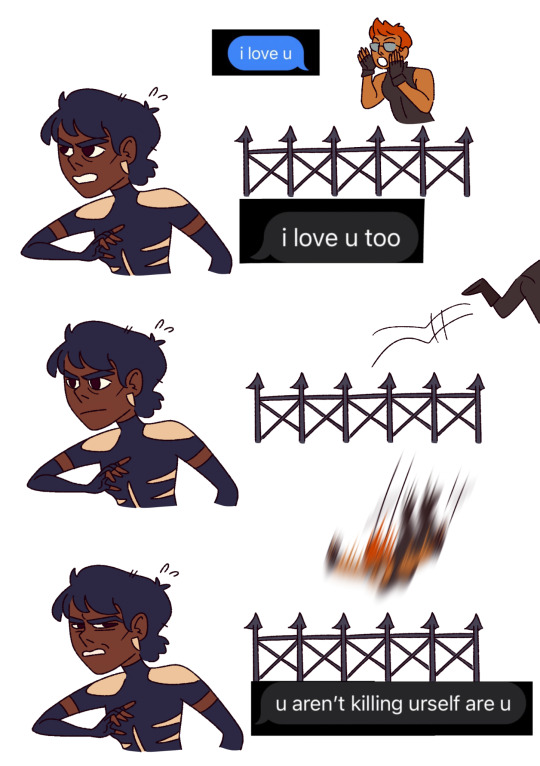


mama a Body behind you 😰 // pt1/pt2/pt3
#NO I STILL HAVEN'T FINISHED NONA PLEASE DON'T LOOK AT ME#the next book still doesn't have a release date and i don't wanna be left in lingo#and also i love nona and don't want anything bad to happen to her and i have a feeling. bad thing are gonna happen to her :')#also can you fucking believe it's december now. jesus christ#anway. tags now#tlt#the locked tomb#gideon the ninth#harrow the ninth#gideon nav#harrow nonagesimus#harrowhark nonagesimus#griddlehark#ianthe tridentarius#palamedes sextus#camilla hect#nona#harrianthe#kay byeee!
10K notes
·
View notes
Text
I came out to my dad as bisexual at 14 and I was PANICKED because I had a crush on a guy in my Boy Scout troop and thought I was Going To Hell Forever and he was so kind and understanding of my distress, but he had NO idea what bisexuality was. He just said “yeah but you like girls too? This is normal. Everyone is like this.” And I love my dad and trust him with my life to this day and the idea that the concept of bisexuality had not occurred to him had not occurred to me so I put it off.
By 16 though I had a crush on like THREE boys. Three entire boys in my Boy Scout troop. I felt like my sin was slowly advancing, until like an untreated cancer it had become metastatic. I remember bawling my L’il limp-wristed sissy eyes out in his big rumbly truck on the way home from a scout meeting and him telling me that it was OK, that he still loved me if I was gay, but that he knew I wasn’t gay because I still had crushes on women and that meant I was straight. I didn’t quite know how to explain that those felt *~*different*~* and that I felt like I was losing a fight to evil inside me but I again felt comforted by his reassurances and his genuine fatherly love.
At 18 I was like “hey I’m realizing all my friends are going on missions. I don’t wanna do that. Idk how to say that and I don’t have a ‘good enough’ reason to not wanna go.” So I just put it off. Again, my parents were extremely supportive of the information I gave them (I blamed it on perpetually forgetting to start the paperwork.) and one day my mom texted me that she had done the paperwork for me! And that all I needed was to get a physical! So I did that (it was awkward af tbh, my hernia check was done by a trainee doctor and she spent like 3 minutes fishing around my inguinal canals before her attending rescued me) and was sent to Mexico City where I learned that in addition to dipshit himbos with strong hands and scruffy guys with artistic hearts I was REALLY into chubby Latin men with strong personalities who bullied me a little when I lived in Mexico.
I remember my first companion got annoyed with me during an argument and said we were just gonna wrestle and whoever won the wrestling match won the argument (I stg I am dead serious this happened.) I was like…SWEATING when he tore off his tie and threw his white button-down shirt onto the ground (I won btw, don’t ask me how).
I remember one of my companions with this really intense, almost manic energy telling me that he was gonna make sure I was safe in a new area I didn’t know very well. He cooked breakfast for me and we’d go shopping together on P-Days and in the mornings before breakfast he’d jog around and do pull-ups with his shirt off and I’d do anything but look at him because my face would break out in a sweat so intense he’d think I was crying and come over to see if I was OK and somehow make it worse. He let me play D&D with myself in the evenings even though it was against mission rules because he knew how lonely and stressed I was.
I remember one of my companions was a big chubby man with a loud voice and a great sense of humor. He was kind and direct when addressing conflicts with me, and always bragged about how he knew the secrets of women’s minds and it felt like he really did since it almost always boiled down to “Treat Them Like People and Love Them a Lot. Don’t Stop Being A Person For Them. Also Eat Them Out Sloppy Style.” Our P-Day activities sometimes felt like dates, and it seemed like he was more attentive to my emotional state than I was since he was always the first to suggest we slow down our Divinely Mandated, God-Ordained, Super Sacred Work and Wonder to get a snack or check out a Pawn Shop (I love Pawn Shops).
I remember another companion who asked me to bully him every time he did something against his goal of losing weight. It was like he gave me Carte Blanche to take out my crush on him by being a nuisance and I LOVED that. I remember having a breakdown one day after we’d spent the afternoon frantically cleaning our disgusting-barely-habitable mission house to make it look less vile that it was (not our fault imo?) and I started bawling and he pulled me into a hug and he smelled good and he told me he knew it wasn’t just the house and that I was mad at him for being a Huge Dickhead for about a week (true) and that he would work on it. (He’s also a huge chaser but that’s a separate thing.)
I remember one of my companions waking up early (and our schedule is already built for sleep deprivation) to make me a “birthday cake” from knock-off Nutella and bread. He used matches for candles and woke me up, lit the ‘candles,’ pulled them out, then smashed it in my face and took a bunch of pictures while I was still madrugada and disoriented as fuck. He had the same sense of humor as one of my HS crushes and I could push his buttons pretty easily which was so fun.
I came home from my mission and started back at BYU where I became actively and aggressively suicidal. I had a stalker the year I moved up there and my dad’s solution to that was to get me a gun. I know he wouldn’t have bought me a gun if he could have read my mind, but I had a loaded pistol under my bed during a trifecta faith/sexuality/gender crisis and that was not helpful. I remember that the day I decided to kill myself I figured I’d call the BYU CAPS and see if I could get into therapy because it felt like what I was “supposed to do” so I could check my suicide boxes. My therapist was the guy who’d helped me pick a major the year before and was this drop-dead gorgeous Hawaiian man who cried when I told him how I’d been feeling.
A few weeks into therapy I met another stunning man with soft eyes and a scruffy illegal-at-BYU beard he kept pushing his luck with. He was funny, kind, patient, married, and wouldn’t give me the time of day if he knew I was crushing on him. We were in my history of psych class, which was inarguably the worst psych class I have ever had, and we studied together for every assignment and test and I realized that my feelings for him and for all the men I’d already mentioned were in direct conflict with my faith and relationship with God. My already agonizing spiritual conflict became even more wretched and as a result of this plus some other tightly-packed experiences with Mormonisms bullshit, I left the church.
After leaving the church I decided to move back to AZ and transfer to ASU. My mom helped me get a dog since I think it had started to dawn on my family that my mental health was barely getting me through the day, and she knew that we both loved dogs. Madi made my last year at BYU livable while I got my shit together and transferred. In that last year, I went on a date with quite possibly the only semi-openly-out trans person on BYU campus. It was not a great date imo, I was not doing well, but the person I spoke with was fun and fascinating and talked to me about Gender Dysphoria and it really cemented my need to go. To leave and never come back to that fucking school.
I started at ASU a month after my last semester at BYU and within a very short time frame it felt like I was coming back together, like a puzzle magically putting itself together in an environment that wasn’t slowly draining that puzzle’s will to live.
On the 4th of July, the year I started at ASU, I saw a transition timeline photo of a gorgeous happy beautiful happy radiant happy woman and her former Mormon missionary self and I realized the light that was on in her eyes was the light that was off in mine. I looked into transitioning for 3 days, sleeping about 10 hours total during that time. I started talking to other trans people on Reddit (one of whom is now my beautiful fiancée @cintailed) and after about a month of making preparations to be disowned and kicked out, something I was not sure would happen but was ready to go through to Turn On The Lights, I came out to my family and it was amazing. I started HRT a month after that. I secretly dated some dorky guys for about a year while I applied to grad schools. I got into a great grad school for me and my needs. I got FFS. I did my trainings and classes. Me and my fiancée moved in together after some LDR shenanigans. We’ve lived together now for 4 years of basically marital bliss. We have a cat named Grandmother Esmeralda Weatherwax who bites the hell out of my feet about three times a day. My bi-cycle continues to be part of my life but now it’s not as scary. Baby gays in my life have started to look to me for advice. Idk how this all happened so fast. When the years, months, weeks, days, and hours seems to crawl by so slowly now they are rushing past me so fast it’s almost bewildering. Whereas before I felt like I was living on borrowed time, past my ‘expiration date,’ now it feels like I can Fucking Breathe. I’m training myself to slow down now and it feels worth it to Live In The Moment.
Idk why I wrote this. Idk why these thoughts only seem to come up on Sundays when I’m supposed to be writing my dissertation. Idk why I’m crying rn or why I feel so happy. I’m gonna post this shit then get on with my dissertation I guess. Read more Terry Pratchett and give yourselves the time you need. Get a pet. Talk to someone. Re-examine the events that brought you here. Be gayer. Love y’all 💕
#tgirl swag#worm#mormon#lds church#church of jesus christ of latter day saints#boy scouts#Mormon mission#Mormon missionary#elder#the book of mormon#bisexual#transgender#trans stuff#trans pride#lgbt pride#bi pride#mental health#BYU#pets#my cat#cat#dumb cat#granny weatherwax#terry pratchett
5K notes
·
View notes
Text

pls assume i'm thinking about this moment 24/7 all week every week
#ahsjgdh i love the young xianle quartet sm they're almost barely not traumatized...kinda#they're very silly especially in retrospect#aaa i do also really want to draw young xie lian and mu qing but the idea of rendering that much gold detailing sounds like hell ywy#i'll do it but christ alive#my art#fanart#tgcf#tgcf fanart#tgcf spoilers#technically#also i haven't read past book 3 for now ywy#tian guan ci fu#heaven official's blessing#feng xin#hua cheng#...he gets one tag bc i'm not keeping track of all the aliases#every time i draw hc his hair gets worse and worse#my man has not seen a hairbrush in the past 800 or so years of his existence
11K notes
·
View notes
Text


Spotted this in a second hand bookshop and the whiplash I felt was so strong that I think I’ve discovered another 12 stages of grief
#had a tumblr moment out in the wild#goncharov#it sent me into shock#plus it was under ‘collectibles’#started questioning my own sanity Jesus Christ I started wondering if someone on here had fucking narrated it and it had somehow reached#this tiny little village shop#the book itself is oblomov by Ivan goncharov btw
27K notes
·
View notes
Text


Second or Third Contact
part 1 / part 2 / part 3 / part 4
---
they're about to be really normal about things
#gravity falls#billford#bill cipher#stanford pines#the book of bill#stump art#comic#gf second or third contact#hi everyone here's my fucking comic#jesus christ i took my sweet ass time on this#started this in NOVEMBER#i blame vegas . i blame all of my problems of 2024 on vegas#elvis you rat bastard#anyways here's my comic about how i don't think the guy who essentially finger fucks a sleeping gremloblin would be shy about touching bill#once again . he downed a helicopter#enjoy my toothpaste ass intro to calc book cover mindscape for this one folks#it makes me . laugh
2K notes
·
View notes
Text

billford for my friend using his bill design
#drillart#gravity falls#stanford pines#bill cipher#billford#book of bill#I havent seen much about book of bill ecxept whats been on my tl but like. jesus christ. that is homosexuals
2K notes
·
View notes
Text
i still can't believe that "you should read comic books in the comic book fandom" is somehow some kind of spicy hot take tbh. comics are cool and some of them have my best friend superman in them. and if that's not enough they even have lois lane. what's not clicking
#rimi talks#sorry. just saw a fuckign post. WOW.#someone: ''reading comic books is fun and its not that hard to get started!''#the notes for some reason: you ableist fucking elitist gatekeeping asshole--#HELLO???????#my brothers in christ you are the ones in the comic book fandom WHY ARE YOU HERE IF YOU DONT LIKE COMIC BOOKS...#making this post feels vaguely like swinging a bat at a hornets nest but the fact that it does is also fucking insane#this is not a hot take this is a basic ass white bread take. what is in the water out here.
3K notes
·
View notes
Text






A little while, and you will see me no longer. Again in a little while, and you will see me.
John 16:16
#easter#easter sunday#holy week#lent 2024#Christ is risen#resurrection#jesus#quotes#bible quote#bible verse#catholic#Christian#orthodox#religious imagery#religious art#light moodboard#moodboard#oil painting#acrylic#poetry#books#philosophy#hopecore#aesthetic
3K notes
·
View notes
Text

#faith in god#faith in jesus#jesus is coming#god#jesus#god is kind#jesus christ#god is real#christian faith#christian blog#jesus is the way#jesus is life#jesus chirst#jesussaves#i love jesus#lord jesus christ#jesus loves you#godisgood#godbless#christian bible#christian living#belief in jesus#bible scripture#belief in god#bibleverse#psalm 5110#psalm 51:10#psalm bible book#bible quote#bible verse
886 notes
·
View notes
Text
Ideology of Exceptionalism and Gravity Falls; meta and character analysis

I had a whole ago read a post by @icanlife that had a quote by Alex Hirsch on Ford's greatest flaw, and wanted to explore what the flaw is, which is the ideology of exceptionalism; in the exploration, I’ll touch on what it is and how it is used in abusive relationships and cults, as well as how it drives multiple Gravity Falls characters and consequently how it impacts relationships between these characters, and how the show ultimately refutes exceptionalism.
Quick note here; I am not in any way, shape or form a psychologist nor have any formal training in psychology; this is written from my own experiences with this ideology and my own forays into psychology and trauma-informed learning. It is also written with a loose understanding that is likely not broad enough to cover all references to cults, extremist groups and abusive relationships.
The Ideology of Exceptionalism
First of all, we have to get through a drier bit, which is… what is the ideology of exceptionalism and how does it arise? Might be fairly obvious, but it is the belief that you are, or belong to, a group of exceptional people, thus more important and worth more than anyone else; ie, those who don't qualify as 'exceptional'. It is often a subconsciously learned ideology. Now, what qualifies one as exceptional can be extremely varied; generally it revolves around something that provides some form of privilege. Thus, it might be, as the main exceptionalist idea in Gravity Falls, 'intelligence', or power, or it can be such things as attractiveness, quantity of money one has, species, nationality, or skin colour and ancestral heritage. The ideology of exceptionalism, being by nature hierarchical, devalues, and at its worst, openly and violently dehumanizes those who do not qualify as exceptional.
For why exceptionalism occurs is an extremely broad topic, but I've personally found that, for exceptionalism revolving around intelligence, it's a result of a poor sense of self-worth, and having one's self-worth tied to what makes one exceptional. Poor self-worth itself (again, broadly) is a result of childhood trauma from a lack of positive affirmation and unfulfillment of the emotional needs of the child. Meanwhile, self-worth becoming tied to the quality of exceptionalism generally is a result of when positive affirmation was pretty much solely provided around their 'exceptionalism', especially when provided derogatory commentary, or a blatant example of how they would be treated if they aren't 'exceptional'. As a result of the general lack of affirmation, self-worth then becomes often solely reliant on the qualities of exceptionalism, as that is the only way for the child (and later, adult) to get affirmation of their worth, as well as out of fear of being ‘not worth anything’ like the examples of ‘non-exceptional’ people they have been given.
This is especially likely to occur when the child is a social outcast; the adoption of the hierarchical ideology of exceptionalism, and the devaluation/dehumanization of others often occurs subconsciously as an avoidance/minimization tactic from pain. This is to say, the child, and later the adult (if healthy self-worth is not established) goes 'it doesn't matter what the non-exceptional people say or if they accept me since I matter more than them because of my exceptionality'. It can even be taken further, that being shunned is part of one's exceptionalism, and becomes part of the qualifier of being exceptional. For instance, 'they just can't understand because they aren't exceptional and that's just a part of being exceptional'. This idea also neatly tailors into the part of the concept of being better then others means you are separate from others; this can be taken that someone who is special, needs to be alone to be truly special.
Obviously, exceptionalism is not a healthy coping mechanism for poor self-worth, as often such people constantly feel the need to prove and show off their exceptionalism to gain that affirmation and avoid rejection, which is stressful. As well, it often negatively impacts their relationships with other people as a result of the arrogance of believing that they are better than most others, or even deliberate sabotage due to their arrogance. This occurs as they flatten the complexity of human experience to black-and-white hierarchical categories of exceptional/not-exceptional through constant judgement of those they meet, and often refuse to engage with people who don't belong to their 'exceptionality', or even people they simply don't like, even if they technically qualify. Generally, those that they do like or have close relationships with, often due to being similar, are automatically labelled as 'exceptional'. Those judged as ‘exceptional’ also become privy to the open judgements of ‘non-exceptional’ others, out of a subconscious belief by the exceptionalist that the other believes similarly; something that may strain their relationship if the other doesn’t ascribe to exceptionalism. This all culminates in the exceptionalist being blind or even adverse to the diversity of experiences, which makes it difficult to create relationships and community outside of echo chambers of their own beliefs (if they can even find this), and subsequently, these people are often isolated and have very few to no close relationships with people.
However, all humans require connections with other people, relationships where one can rely on others emotionally and physically if needed and feel accepted; they also require to feel like they are worth something, that their life has meaning. Lacking meaningful connections and having a crippled sense of self-worth, a deep yearning hole is left in these people. Exceptionalism, especially as it is a narrative constantly pushed by Western society as it validates hierarchies, is then employed as a (often subconscious) trauma response to assuage this yearning hole, with arrogance and denial. And depending on the circumstances, it can be a very strong and definitive trauma response for people.
This isolation and lack of self-worth is catnip to abusive relationships, including cults and extremist groups. These types of relationships often heavily rely on isolating their victims or pulling them into echo chambers of solely the abuser’s rhetoric, to redefine what is healthy through gaslighting; as the exceptionalists are already isolated, this makes them extremely susceptible. They also often provide these people affirmation, and in these cases especially about their exceptionalism, thus confirming their self-worth, their 'specialness', while also providing them the connection they have been lacking, either through the cult community or through the abuser’s own presence. These emotional needs, which haven’t been met in a long time, if ever, begin to be fulfilled; something that abusive relationships and cults hinge on, rather than any form of logic.
Ideology of Exceptionalism and Gravity Falls
The main characters within Gravity Falls which are heavily ascribed to exceptionalism would be both Ford and Bill; this characterization deeply impacts the story and their relationships with others (technically the Northwest are another case regarding wealth, but less directly impact the storyline and thus tangential; Gideon also is an example, but as a mirror of Bill). With each of these characters I’ll go into detail within their sections on the way they began to ascribe to exceptionalism, and how it plays out later in their relationships; I will first begin with Ford, then move to Bill. Then, to cap it off, I’ll go into the characterization of Stan and the way Gravity Falls refutes exceptionalism.
Ford and Exceptionalism
Firstly, the quote from Alex Hirsch that kicked this whole baby off, as mentioned previously;
“Ford sees Dipper as someone who’s special like himself. That’s Ford’s great flaw, his arrogance is he believes that there’s special people, and everyone else. That human attachments are actually weaknesses. And the song and dance that he’s giving Dipper right now, is the song and dance that he gave McGucket, back when they were younger… ‘You and me are different, we’re better than everyone else. We have a path that no one else can understand, and only us can do this.’ It’s a very seductive idea for Dipper… Dipper is a smart kid, but Ford’s projecting. Ford loves Dipper because he sees someone who’ll tell him ‘yes’ to everything. Who’ll never challenge him, who’ll do a really insane dangerous mission.”
Very blatantly Alex Hirsch calls Ford out on his arrogance in the belief that he is special, in his belief in the 'lone hero' complex, in his belief in exceptionalism. And really, it should be no surprise that Ford does so, considering the way he's depicted as a social outcast as a child (other than Stan), and the way his parents have been clearly shown to be not particularly emotionally supportive (“I’m not impressed”); they don't provide positive affirmation except for his intelligence (mostly due to the possibility of money making through it…), while also actively comparing him to Stan who is derogatorily ‘not-exceptional’, and ‘worth less’. This all sets Ford’s self-worth up to be fragile, and other than Stan who wholeheartedly accepts him, he is isolated and invalidated; plus, the only other validation he receives is around his intelligence. All very classically fitting the profile for exceptionalism.

Image id: Stand and Ford when they were children, both clearly enjoying each other's company.
Ford’s belief in his exceptionalism catalyzes after the shattering of his and Stan’s relationship. Previously the twins are shown to do everything together, having a very close caring relationship; something unlikely if Ford thought he was better than Stan. Also, when Ford is talked to about his opportunities, Ford looks uncomfortable at the way they talk about Stan as inferior, compared to how he himself is being praised; but in the offer he’s simultaneously finally being validated, he’s being told he’s someone worth something, and he’s going to be someone worth something after this. And then the science fair incident occurs, and Ford loses that validation from his parents, from the judges and a future of more validation; after being promised validation and acceptance, it slips through his fingers. And in his anger of being denied that, it becomes easy to begin to slip subconsciously into the rhetoric the others have been feeding him; that he’s exceptional, that Stan isn’t, and he deserved to be recognized for his worth. So he breaks the relationship with the only person who accepted and validated him for who he is. With that loss of previous support, Ford becomes then deeply obsessed with proving his exceptionalism to the world to assuage that fragile self-worth, to become accepted, or even better, revered, confirming that he is someone of worth, someone special, like he was promised.
Ford’s obsession also doubly functions as a way to alleviate his guilt over shattering their relationship; if he’s exceptional as he believes, then he’s within the right to respond the way he did, as he’s worth more than Stan, he's better off alone, and he has a right to be angry over being denied that validation. As well, in much the same way as it is used as a way to alleviate his guilt over the end of their relationship, it is also likely used in a way to minimize the pain of being ostracized (although not directly depicted); afterall, Ford’s keenly aware and insecure about his social ineptitude and his six fingers as things that make him different from other people, case in point with his experience visiting Lazy Susans Diner. Thus it wouldn’t be unsurprising if he uses the idea of being worth more than those who ostracize him to imply it ‘doesn’t matter’ what they think. His ostracization by nature keeps him from generally forming close relationships, with the exception of Fiddleford (who much like him, is socially outcast, and intelligent) during his university days. As a result, he's isolated and acutely lonely, having lost Stan.

Image id: One of the missing Journal 3 pages in TBOB, detailing Ford's botched social interaction in Lazy Susans Diner. In the background is the print of his six-fingered hand.
In his obsession over being acknowledged, Ford, like many others who believe in exceptionalism, identifies strongly with the causes of his ostracization (his intelligence, his six-fingeredness) as part of, or wholly, makes him exceptional. It is obvious through his choice of study; with the grant he has been gifted, he chooses to revolve his work around the weird, the outcast, something that you see Ford gravitate towards being an outcast and deemed 'weird' himself (which in Journal 3 he openly talks about). Something that can be, much like him, framed as 'exceptional'. His work is even recorded in a journal that Ford deliberately chooses to put his six-fingered hand on the cover of. Intertwined with the way it becomes adopted into the idea of exceptionalism, is the keen loneliness from his ostracization and a deep desire to be accepted and a wish to find a community of other weird people.

Image id: Two pages from journal 3, labelled 'Myself', in which Ford is open about being weird, and a social outcast, while also noting his ambitions and that 'Gravity Falls, [is] the place that I fit in.'
Ford and Bill
All of this culminates in Ford becoming an incredibly easy target to manipulate by Bill. He’s desperate to be acknowledged (and thus accepted) by an authority figure so that his belief in exceptionalism is justified and his self-worth confirmed. And he knows he’s intelligent, that he's exceptional because people have told him so, but he just needs to prove it with something that shakes the world. And the grant is finally his second chance after the fair, but he's stuck, and the research is going nowhere, and he's in a town where he doesn't really know anyone and he’s so terribly lonely. And sure, he clings to his exceptionalism but if he can't even prove it then is he really exceptional? Is he even worth anything like he thought he was? And what about what he's left behind, rejected, because of his exceptionalism?
And THEN he finds an incantation and he ignores the warnings because maybe, just maybe, this will be his break to get that acceptance/validation he has been chasing his whole life?
And then it's better than that.
A god, essentially, shows himself to him, an ultimate figure of authority. And he tells him that yes, he is special, he’s worth more than other people, and Bill’s only showing himself to Ford because he is so much more intelligent than anyone else. Ford is suddenly getting his exceptionalism confirmed by a god of ancient knowledge, an immensely intelligent interdimensional being, and he’s also showering him with affirmations, specifically affirmations around what Ford's fragile self-worth is based on. And even better, he's delighted by Ford's six-fingeredness; he's not put off at all, it even becomes his main nickname for Ford, just like it used to be for Stan all those years ago. On top of it all, Ford's own social ineptitude doesn't phase Bill, another thing Ford is self-conscious about; Bill's own social ineptitude as he's not human probably makes Ford feel comfortable, knowing that's not expected from him.
Through Bill, not only does Ford find someone who validates his self-worth through intelligence and even confirms to him that his weirdness is part and parcel of making him special, he also finds someone who he regularly (generally) is in contact with, who enjoys talking to him and even banters with him familiarly. Hell, Bill even deliberately goes out of his way (literally possessing a whole wack ton of rats, then dream karaoke) to celebrate his birthday with him; how long do you think Ford has simply skipped his birthday since he had no one to really celebrate it with? The loneliness, beneath his arrogance and belief in exceptionalism, is being fulfilled; for the first time since Ford was a teenager, he's fully accepted by someone, social awkwardness, six fingers, exceptionalism and all.

Image id: One of the lost pages from Journal 3 in TBOB, the 'one thing led to another' page, with Bill and Ford singing karaoke and drinking together, both clearly enjoying themselves; Bill has an arm slung around Ford's shoulders.
So it's really no surprise at all that Ford fell for this, hook line and sinker. Hell, if I was in Ford's shoes I would fall for it just as hard. And I've seen a few posts floating around talking about how Bill is bad at manipulating, and no, he's not. He was able to pinpoint exactly what Ford wanted and needed, and provided that, was charismatic enough to provide that. Again, manipulation isn't about logic. It really isn't; it's about the emotional core in people, what people lack and what you can give them to slowly reel them in to sing your dance and song. And people will ignore vast swaths of red flags when you're finally being accepted, when you're finally getting your emotional needs met at least in some way or form. It's better than not having them met at all, such as previously. So Ford worshipping Bill is really not a surprise, especially as Bill deliberately stoked it.
All of this is part of why you see Alex Hirsch call Ford's belief in his exceptionalism his greatest flaw; because it allowed him to be very easily manipulated by Bill, and by its nature kept Ford isolated from others, evident by his arrogance in assuming he knows best and refusing to see other people who aren't as 'intelligent/weird' as him as worth getting to know, listen too and even reach out to ask help from, it's him believing he has to be the lone hero as someone whose 'special'. It's something that blinds him to the danger of his work around the weirdness of gravity falls because he’s desperate to seek a place where he and his weirdness belong, and it's something that plays out in each and every relationship he has because it's something he clings to so deeply. It's what cost him his relationship with Stan, who previously accepted him completely, and, as he's disinclined to form new relationships and as Bill actively strokes his paranoia (Trust No One…), ultimately further increases the hold Bill has over him. It's only Fiddleford’s presence as he works with Ford that allows him some form of outside reference and reprieve from solely Bill’s influence, something that Bill resents deeply and is clearly jealous and angry about, even if Fiddleford is helping create the portal. And it's ultimately Fiddleford, once he was aware enough of what was happening, calls Ford out on it, seriously jeopardizing Bill's influence over Ford; but Ford is too invested in the portal, in chasing his own ambition and caught up in Bill’s manipulation to take him seriously, until the incident with the trial, and Ford beginning to hear other voices then Bill.
Ford’s Exceptionalism and Wider Relationships
Now back to how it plays out in all Ford's relationships; we've already gone over it with Bill's influence, because it made him extremely easy to manipulate, and with his disregard of Stan in favor of validation of his exceptionalism. But Ford, as pointed out by Alex Hirsch, also exerts the ideology's seductive rhetoric to both Fiddleford and Dipper (who look up to Ford) in a similar way that Bill does with him (although there is a difference of it being used intentionally and maliciously, compared to subconsciously and earnestly, even if it is problematic). Ford, with his black-and-white view of exceptionalism, sees both Fiddleford and Dipper as people who are like him; 'exceptional', and so he treats them as such, and uses this rhetoric to coerce them into helping him.
For Fiddleford, the lure is how he can change the world, how he can be finally acknowledged if he helps Ford with the portal. And it works well; he willingly chooses to leave his own work and his wife and young son, to work with Ford. Much like Ford, Fiddleford himself is also a social outcast and regularly presumed less smart than he is, and he’s got a chip on his shoulder to prove himself, to gain acknowledgement and recognition from the world at large. Although Fiddleford has a family which presumes he’s not entirely lonely like Ford is, he also clearly has deep feelings for Ford, some which are hinted to be more than just ‘friendly’ feelings; it is likely the combination of the lure of validation and spending time with Ford, a kindred spirit that accepts him and an old friend/crush, that causes him to agree (afterall, it was Ford who made Fiddleford feel accepted and choose to stay at Backupsmore). And Fiddleford’s not even considered a partner, but rather an assistant to Ford due to Ford's arrogance, and he still drops everything to go! It’s more about their relationship and connection rather than validation, but that doesn’t stop Ford from espousing exceptionalism. And this is a distinguishing difference, because although Fiddleford would like recognition, he’s not there solely because of it; he’s not a believer in exceptionalism nor arrogant about his skills, and so, unlike Ford who is blinded by his obsession, he’s much more aware of the dangers of the weirdness of Gravity Falls. Thus, he's actively calculating the risks involved, and when he realizes there could be potentially devastating consequences of the portal, he attempts to talk Ford out of it; this fails due to Ford’s own denial and obsession over the portal. In the end, it all goes terribly sideways, and Fiddleford ends up losing everything he had; his wife, his son, his friend, his memories and himself to the trauma he had experienced at the invitation of his friend with the lure of validation and company, due to the memory gun he had created himself.
As for Dipper, much like Ford, he also has issues with self-worth (many of the episodes deal with Dipper finding self-worth; ie, the manotaur episode), has a physical oddity (his birthmark) and by far the trait he relies on most for worth is his intelligence (for example, in one episode he rubs it into Mabel's face over and over again in beating her in games). He's also extremely desperate to be recognized by authority figures as someone intelligent, case in point when he summons the dead after being made fun of by the government agents to try and show them that the information he's gathered is important after Stan dismisses his knowledge. This desperation to be seen as someone of worth from Dipper, much like Ford, extends to the need to be a hero, something he even says at the end of the zombie episode; yet, due to Mabel, unlike Ford he's not a lone hero, and Mabel also half the time acts as the hero.

Image id: Zombies crawling out of a crack after Dipper summons them; Dipper and the two agents look on in horror.
It all culminates in Dipper hero-worshipping Ford when he returns; really, no different than Ford worshipping Bill. And Ford clearly finds it extremely flattering; Dipper's attention and amazement of him feeds his exceptionalism. Exactly how Ford responded to Bill, Dipper is willing to do anything for Ford, excited too, in an attempt to impress Ford and be validated and accepted. And for Ford, that's an extremely heady feeling, especially as someone who has been constantly alone the last 30 years, especially when he had one previously confirm his exceptionalism all those years ago and stopped, and now someone is once again affirming that idea. And Ford doesn't have to be alone again, because he's found a kindred spirit in Dipper as his assistant, someone ‘just’ like him, someone who is exceptional. Because he sees himself in Dipper, he begins to espouse exceptionalism unconsciously, by praising Dipper's own intellect and adventurous spirit, assuaging his feeling of self-worth, while also telling him he's more important or better than others because of it.
And it's seductive to Dipper, because he wants to hear those affirmations of his self-worth, especially as he hero-worships him, but Dipper isn't sold on it, because it means leaving Mabel behind, it means believing that he's worth more than Mabel (and also, Stan, and all his friends he’s made in Gravity Falls). It's ultimately because of his relationship with Mabel that he rejects the ideology; he's not isolated the way Ford was with Bill, and he's not willing to break that relationship for that acknowledgement, because his relationships matter more to him.
Bill and Exceptionalism
Now of course, that's only on the Pines; what about Bill?
While it's obvious that Bill uses exceptionalism as a main manipulative tactic, it's not just an ideology he sprouts emptily; it's also an ideology he believes in, just like Ford, although it's less based on intellectual exceptionalism, and more on power and 'weirdness'.
This most distinctly can be seen in Bill's denial about what happened to his home dimension; Bill's belief in his exceptionalism occurs as a pain avoidance tactic from killing his whole dimension. Bill was clearly a social outcast within his dimension due to being able to see 3d; he's not accepted, and not trusted, to the point that there is medical intervention to make him blind. That's a deeply traumatic experience that completely erases one sense of self-worth, where one’s sanity is called into question by your parents on something that is not harmful, that's beautiful and you just want to share with them. It's a deep and clear rejection of who Bill is, and his ability. As a result, out of a desperate bid to be understood and accepted, he ends up trying to show them the stars. And it ends up killing everyone.

Image id: Page of TBOB, on 'The Early Years' which notes that Bill was an oddity for seeing 3d, something that was illegal to speak about. Bill frames it as something that made him 'special' and better than all the others.
Traumatized, and originally rejected by the dimension, he instead weaves an excuse of exceptionalism; that it doesn't matter what he did to them because he's exceptional and he's worth more than all of them because he can see 3d, because he's powerful, so he shouldn't/'doesn't' feel any remorse about it. With such a traumatic result of trying to be accepted by people, he rejects the idea of trying to be accepted for who he really is; instead adopting a facade of a monster that he believes he is (and eventually, becomes).
Even if he clings to the delusion of exceptionalism, and shuns attempts to find true acceptance, he still wants it; and that's where his henchmaniacs fit in, as they're all, as Bill's noted when trying desperately to get Ford to join him, weird; each has something 'wrong' with them, which is why Bill accepted them as his lackeys (although it's not like we know the context around these). It's a surface-level acceptance however, one more predicated on fear than emotional acceptance. He's taken his 'weirdness', much like many do who believe in exceptionalism,as ‘part of what makes him exceptional'.
In the same way that Ford wants to show the world that he's smart and intelligent by building the portal, Bill does so by wreaking havoc and taking over existences as a way to show the world that he's powerful, that he's someone to be reckoned with, that he's not someone to be ignored because he's someone who's worth more than others. If you can't be loved and accepted, then being hated and feared is better than being ignored; acknowledgement at least approaches acceptance, it's validation of some sort of worth. It also functions as deliberate self-sabotage of his morals, by proving that he is the monster that killed his entire dimension; if that's what he is, then that's who he's going to be, because if he wasn’t, then he has to come face to face with his remorse over what he did to his dimension and his whole house of cards around his exceptionalism and not caring collapses. So instead he keeps feeding the delusions the denial, and lies and lies and lies and keeps lying to ignore all of it, to wrap himself in this shroud of exceptionalism and brutality as a way to function. And it somewhat works, because he's mostly deluded himself about it all, even if subconsciously he knows.
And of course, this display of Bill's exceptionalism is what brings Bill to earth, to Gravity Falls, and to manipulating humans. In meddling with earth and humanity, beyond Bill's goal of taking over earth and fleeing his own unravelling dimension, he also enjoys reaping the benefits of being worshiped by humans, who find him awe-inspiring. Their amazement of who he is, and Bill's own posturing and manipulation of people leads to Bill literally forming cults (ie ciphertology) or having apprentices that worship/find him (to varying degree) inspiring; all reinforcing his feelings of exceptionalism.
Of course, Ford numbers among these people; he praises Bill and worships him, as he's played like a fiddle by Bill, because his self-worth and belief in exceptionalism is fucked up in a way that perfectly resonates with Bill’s. Because it's the exact same types of issues around self-worth, around being an outcast, being weird and wrong physically, and yet at the same time gifted. And Ford clearly is incredibly lonely and yearning for acceptance, but so is Bill; since the beginning he's been trying to find someone who would accept him, even if he's given up on it. And for his song and dance to entice Ford in, he pretends he's not crushed dimensions for fun, that he's not a 'monster'; a version of him he buried after he had tried to show his parents the stars, one that he occasionally resurrects and puppets around for manipulation (all lies are better when they have a grain of truth). And this version of him is worshipped, but above all is accepted, is loved by Ford. The softer parts of Bill, even if they are still weird as fuck, the parts that were never far beneath the surface for all his deluding, become loved by Ford. Much as Ford becomes hooked on Bill’s praise, Bill also becomes hooked on Ford's genuine love and care. It becomes personal, unlike any previous ‘inspirations’ and Bill over time gets to the point that he feels accepted, safe enough with Ford to share about his dimension much more close to the truth then he did with any of his henchmaniacs. He becomes vulnerable with Ford, in response to Ford’s own vulnerability with him. He’s finding acceptance for the first time in his life around the softer parts of himself, not just the feared acknowledgement that comes from his dimensions conquering; much like Ford is finally finding companionship and acceptance with Bill, not just only intellectual validation. Bill's also for once, not just self-serving; he cares, and goes out of his way to take time with Ford, even celebrating Ford's birthday (in the unique way he does things), both with the rats and the karaoke.

Image id: One of the lost Journal 3 pages in TBOB. Ford recounts Bill talking about the destruction of his dimension, and calls himself by implication a monster.
They're both fulfilling each other's emotional needs, needs which both of them have struggled with most, if not all of their lives (although their relationship is certainly not healthy, considering it's codependent as fuck, riddled with exceptionalism and oodles of power imbalance issues). And suddenly, against Bill's plans, Ford's no longer just a disposable pawn, but someone Bill wants as part of his team, someone by his side, closer than his henchmaniacs are. He's unwittingly fallen for Ford, and so when everything goes sideways in his plan, and Ford swears it off, suddenly cutting off their relationship and that acceptance Bill had finally felt, he spirals into grief and anger from the rejection. As a result, he becomes extremely abusive to Ford in desperate attempts to continue their relationship, and ultimately he becomes obsessive over Ford joining him again as Ford continues to refuse, as evidenced by both Weirdmageddon and the Book of Bill.
Stanley Pines, and the Refuting of Exceptionalism
Exceptionalism, being a negative driving factor behind many core character dynamics, is ultimately refuted by the show. This occurs multiple times over the show, such as with Mabel in the Pioneer Day episode, especially compared to Pacifica, but mostly through Stan's characterization. Stan is someone who has been since the beginning characterized (if lovingly so) as someone who is a failure by societal standards; he’s an older man running a run-down tacky tourist shop to swindle gullible tourists out of their money, has multiple divorces, has an ongoing feud with a literal 12 year old, clearly has had multiple mishaps with the law (some ongoing), is generally pretty self-serving and is extremely lonely and really had no close relationships until Mabel and Dipper showed up. He's not exceptional; he's not even what we would consider 'decent' enough to have a 'typical, hard working job’. In short, he’s a failure, a stark difference to the idea of 'exceptionalism' that characterizes Ford. If he's gifted in any area, it would be charisma (debatedly), not anything else.
But it's still Stan who rebuilds the portal from literally only one journal (not all three!) and gets it to work. It even seems like he only needs some codes from the other two journals when he does get them, suggesting that he was able to extrapolate from what was left and the first journal’s blueprints to fix it entirely, something that is extremely difficult and technically complicated (Ford, Bill and Fiddleford all worked on it together!). Stan's able to do it, even if it's been shown he's not 'naturally' gifted in that area. And it's something he does as a result of his deep care for Ford; because even after their fights, he cares about Ford and wants to right his wrongs, believes he should, because of his whole life of being defined as a failure and even worse than that, screwing up his ‘exceptional’ brother’s life. And he’ll do it even if that means learning how to build an interdimensional portal, even if it takes up thirty years of his life doing so, and he doesn't waver. Much of this is connected to his own complexes around being deemed a failure compared to Ford, having failed to succeed in his life, and how he feels that he needs to atone for screwing up Ford’s life, now for the second time; but beneath it all, he also cares. Much like Ford, he's extremely lonely, but he's not blinded by Ford's arrogance, and as a result he wants to make sure Ford's safe, because that's what he used to do, they’re twins, they grew up together, they once they had fully accepted and cared for each other, and dammit that still means something, and Stan hasn't found that depth of emotional connection since. So if possible, he wants to rekindle that closeness they had, but first, he needs to bring Ford back.
And in the end, it's not Ford's own special gun he built using his intelligence that 'kills' Bill. It's Stan, someone who Ford had long ago broke it off with in search of validation of his exceptionalism, someone who both Ford and Bill labelled as 'not-exceptional', who defeats Bill. It's exceptionalism's devaluation of people who are 'not-exceptional' that causes Bill to underestimate the Pines beyond Ford, and it's only when Ford put aside his exceptionalism and his refusal to accept and trust 'non-exceptional' people, that is, trust Stan once more, that causes Bill to end up defeated by Stan.
In the end, it's not about who's 'smarter'; it's a reminder that everyone has different skills and are better at different things, but that doesn't diminish one's worth or value, and that just because someone isn't naturally 'gifted' in an area doesn't mean they can't learn or use different ways to get around obstacles. Ultimately, it comes down to that no one is worth more or less than other people; exceptionalism is a lie. It’s a lie and an excuse, and it's certainly not a healthy way to assuage one's poor self-worth. What does matter is creating positive healthy connections with other people, and caring about them. This creates a community where you can be yourself and be emotionally fulfilled through these connections; and when opposition does arise, you become able to fight it together, and fight so much stronger than if you are alone.
And by the end of the show, you see that. Ford begins to let go of the ideal of exceptionalism and its black-and-white categorization; finally recognizes his own faults around prioritizing validation of his intelligence and exceptionalism over his relationships, and finally, after all the years, chooses to create and rekindle positive relationships with people, trust people, and make amends. And in the end, he goes sailing with Stan, prioritizing their relationship, finally fulfilling their childhood promise.

Image id: One of the pages written by Ford into TBOB. Ford refutes Bill's idea of happiness, and says he has finally found his own happiness, and it looks like the photo taped in, of Stan, Ford, Dipper, Mabel, Soos and Wendy, all smiling together.
TLDR: Exceptionalism, an ideology of categorizing people into being special and worth more vs plebian and worth less, is a trauma response and subconscious ideology that characterizes Ford and Bill’s lives, deeply impacting all their relationships as it is used to coerce people into doing what they want, makes Ford easily manipulated, and breaks relationships through their arrogance. It is ultimately denounced through the way Dipper chooses to reject Ford’s offer and his rhetoric of being exceptional, and through the way it's not Ford’s intelligence, but rather Stan, who has been labeled as 'not-exceptional' and a failure at life, that defeats Bill through trickery. It's a reminder that everyone has worth, and no one is worth more than other people, even if one may be gifted in certain areas; the ideology of exceptionalism is fragile and a lie. In the end, creating a caring, loving community around oneself is where strength truly lies, as is seen with the deep care and love the characters have for each other, and the repairing of Ford and Stans relationship.
Thanks to the lovely @eshtaresht who deigned to beta read this monster of a post for me
If you enjoyed this meta, (first of all if you read all this you're a champ!) I've also done another gf meta post! (It's shorter I swear)
#gravity falls#ford pines#stanford pines#bill cipher#stanley pines#stan pines#hugin rambles#hugin rambles gf#journal 3#the book of bill#thisisnotawebsitedotcom#billford#fordsquared#gravity falls analysis#gravity falls meta#book of bill#tbob#christ its so long whyyyy#also oh nooo i wanna do another thing but SPECIFICALLY on trust. gravity falls is ultimately about strength in community and hnnnghhhhh#that makes me wanna cry#also i had so many thoughts. also on the denial part of exceptionalism??? oh baby Bill fucking LISTS it in his book#like sir. please#anyways i love media analysis and im totally normal about all these characters#also like Fiddleford is. like. yikes man.#anyways uhm. does dropping a 6k essay post make me sexy? please say yes (i HIGHLY doubt it#sheesh who's got time to read all this... psssspsspspp theres PHOTOS that TOTALLY dont have more reading in rhem nawwww#i totally dont know what ur talking about mhmmm#if youre like is this about gifted kids- yes. yeah. i just didnt name it. its also about wider things but. yeah#also. unofficial title? Gravity Falls and Gifted Kid Issues an analysis#oh boy sure hope my post about gifted kid issues is a hit on the gifted kid issues site
672 notes
·
View notes
Text
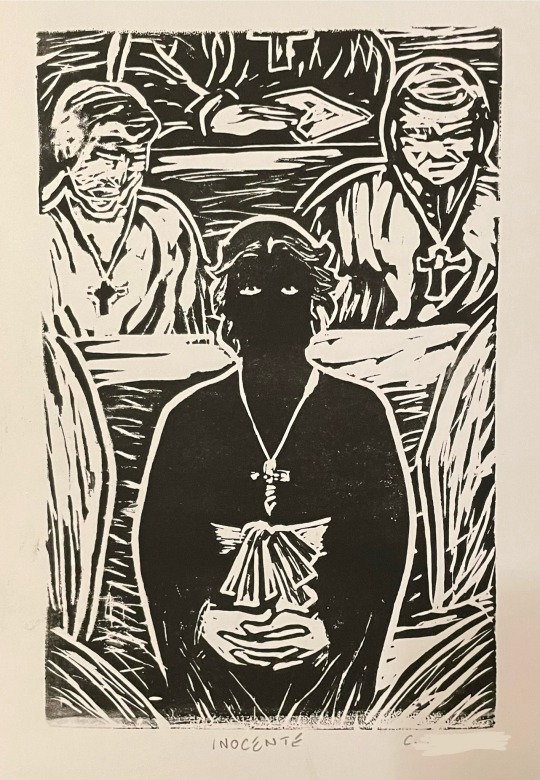
inocente
#pulling from christ of the breadline and the virgin of guadalupe heheheh#as much as i mourn the fact that apparently benitéz was filipino in the book his mexicanness and devotion to mary#Do mean that there’s interesting analysis to be made with guadalupe#my art#conclave 2024#vincent benitez#cardinal benitez
457 notes
·
View notes
Note
Tommy winkler is my favorite unintentional gainer







An excellent suggestion anon!
If you're looking for more content on this guy, @jake-is-still-drunk made a great post a while back covering him in more detail. But yeah holy shit the only two constants in life are twink death and taxes huh
#bulk#bulking#ex jock#exjock#hunky to chunky#fittofat#male gainer#belly#gay gainer#weight gain#i would say#i don't think its unintentional 😉#unfortunately his followers suffer from chronic 'dont understand the concept of a kink' disease#like jesus christ people#take a walk#read a book#call your parents#stop commenting mean things on influencers' instagram pages
1K notes
·
View notes
Text
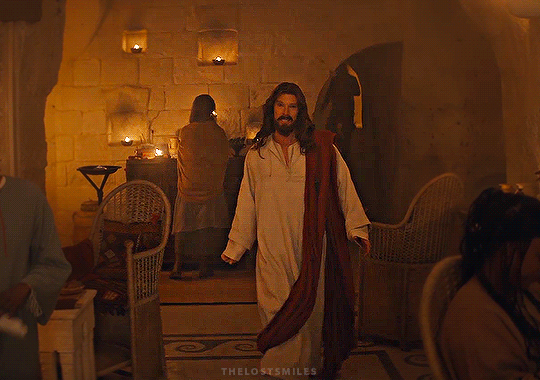
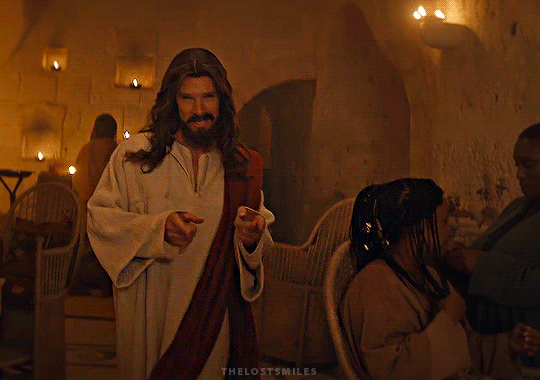

Jesus Christ besties Benedict Cumberbatch in "The Book of Clarence" (2023) Buddy Christ in "Dogma" (1999)
#benedict cumberbatch#the book of clarence#dogma#filmedit#moviegifs#cinemapix#userelysia#tuserpris#userfilm#usersugar#userdiana#this comparison has been on my mind since i saw it#b channeling his inner swaggy jesus :>#buddy christ#mygifs#mine:tboc
655 notes
·
View notes
Text
911 really is such a good reminder of the particularly kind of joy that is weekly, seasons-long shows with many episodes per season. every character gets a moment to shine even in a truncated season. the satisfaction of seeing characters grapple with stuff that happened YEARS ago. having multi-episode arcs and one-off arcs that are equally enjoyable. beach episodes (metaphorical). I know we're all saying this all the time but why can't more tv be like this
#911#911 spoilers#lauren feels things#do I hate waiting week to week for this show?#of COURSE#but it's so fun to run to youtube after an episode and watch the promo for next week#(why don't weekly streaming shows do promos btw? we should bring those back)#this week's 911 really was such a SHINING example of this#in one episode we got:#HUGE bobby exploration#bathena content#major hen exploration#AND henren content#eddie breakthrough#buddie content#callbacks to seasons 1 and 2 in MANY ways#tommy content!! that confrontation with his old shitty captain did so much in such a short time#we didn't get enough chimney or madney for my taste#but that's only because I can LITERALLY never get enough of them#and chimney had a hUGE episode 2 episodes ago so that's okay#and!!!!!! this is after a whole week spent JUST on bobby!#that was so compelling!!!#and in a 10 episode season still feels like we're getting to everything#the callback to dosed#the return of bobby's suicidal ideation#I mean jesus CHRIST#I'm so glad he and athena talked about the book#also I would loooooove love love another bobby chimeny convo about this at some point#bc that scene in s1 when bobby tells chimney about his plans to kill himself#is one of my favorite scenes it's SO good
594 notes
·
View notes
Text

#faith in jesus#i talk to jesus#jesus#jesus is coming#jesus loves you#jesussaves#jesusisgod#jesusislord#bible devotions#bible reflection#jesus chirst#holy bible#bibletruth#religion#quoteoftheday#bible quote#book quote#bible scripture#christian bible#bible study#bible reading#bible verse#bible#jesuslovesme#lord jesus christ#jesus christ#belief in jesus#gospel#relatable#beautiful quote
197 notes
·
View notes
Text
"I wouldn't have eaten the forbidden fruit" yes you would have. Why? Because you do it everyday. Because every character in the bible does it (with a few exceptions) over and over and over again. The narrative uses different ways of talking about it, "taking the fruit", "getting bit by the snake", etc but the real point is that your absolute failure to read the bible as a narrative, and instead to insist on historicity as your primary way of reading scripture, is the root issue here because it causes you to be blind to the actual message of the Bible.
#i will die on the hill that is “the bible is narrative”#garden of eden#book of genesis#christianity#christian#jesus#bible#keep the faith#faith#jesus christ#faith in jesus#(g)arden core#progressive christianity#christian faith#christblr#christian tumblr#christian blog#bible verse#bible scripture#progressive christian#queer christian#lgbt christian#queer christianity
161 notes
·
View notes